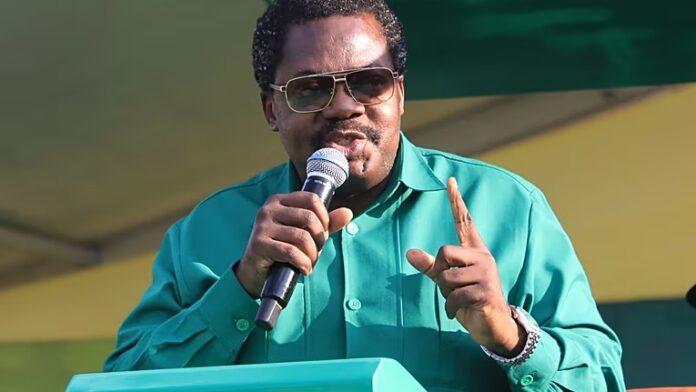Tanzania is facing one of its most turbulent political moments in recent history, as authorities have charged hundreds of citizens with treason following widespread protests over last month’s disputed presidential election. The fallout has sparked national and international concern, with human rights groups warning of a deepening crisis.
The wave of arrests spans across the country, with dozens charged in Dar es Salaam and many more facing similar accusations elsewhere. Among the wanted are high-profile figures like Josephat Gwajima, a popular preacher whose church was deregistered earlier this year after he criticized the government’s human rights record.
Opposition leaders have also been targeted. Brenda Rupia and John Mnyika, senior officials of the main opposition party Chadema, are among those facing arrest warrants. Chadema’s leader, Tundu Lissu, has been jailed for months and now faces treason charges after calling for electoral reforms ahead of the October 29 vote.
The government, led by President Samia Suluhu Hassan, claims it is working to “restore harmony,” according to Vice President Emmanuel Nchimbi. But critics argue that the administration is using state power to suppress dissent and entrench its rule.
The scale of violence surrounding the election remains unclear. Chadema alleges that over 1,000 people were killed, with security forces secretly disposing of bodies to conceal the toll. The Catholic Church estimates the death count in the hundreds, while the Kenya Human Rights Commission claims as many as 3,000 people may have been killed, with thousands still missing.
President Hassan, who assumed office in 2021 after the death of her predecessor, won the election with over 97% of the vote. However, leading opposition candidates were barred from running, and international observers, including the African Union, have condemned the election process. The AU reported ballot stuffing, multiple ballot issuances, and an environment “not conducive to peaceful conduct and acceptance of electoral outcomes.”
Rights organizations, including Amnesty International, have documented enforced disappearances, arbitrary arrests, and extrajudicial killings in the lead-up to the vote—allegations the Tanzanian government denies.
Since independence in 1961, Tanzania has been ruled by the Chama cha Mapinduzi party, which maintains ties with the Communist Party of China. While previous leaders allowed limited opposition, critics say President Hassan’s administration has taken a more authoritarian turn, clashing with the democratic aspirations of the country’s youth.
As the dust settles from the election, Tanzania stands at a crossroads—between deepening repression and the possibility of reform. The world is watching.

